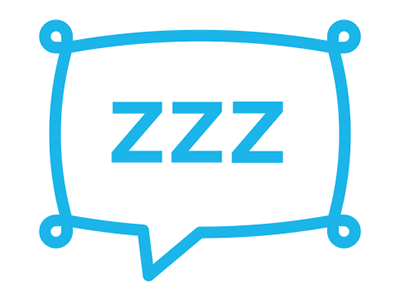Sleep Strategies

Sleep is an essential part of our bodies physiological system and has many benefits from allowing us to rest and recover and compartmentalise new learnt skills and memories. When we lack sleep, this is when we can begin to see issues arise in our lives, such as poor mental health, health problems and issues with memory and retention.
Lacking sleep can be a common issue with many people, however this can hinder our quality of life dramatically. There are many reasons as to why our bodies find it a struggle to get to sleep or stay asleep. This can be split into two categories. The first category is medical. This can include such conditions as epilepsy, restless leg syndrome and sleep apnoea etc. These issues are best consulted with your GP or doctor as they may require further interventions or medication in order to support the issue at hand. The next category is behavioural or due to neuro diversity conditions such as Autism Spectrum Condition (ASC). These can be supported via sleep counselling services.
It is best practice for all sleeping issues to complete a weekly sleep diary. This allows professionals to see what sleep is like at present and any patterns within the sleeping issue. For example, whether it is a settling issue, staying asleep issue or waking at a certain time.
If you are aware what the issues are you may not need to complete a sleep diary, however, you may need to go straight to interventions and behavioural supports. If you feel these issues are still not getting any better, please feel free to get into contact with Sleep Scotland or contact your GP or Doctor.
Please see the information pack below designed for all children, including those with neuro diverse traits and a diagnosis.
How much sleep does your child need?
2 years: between 10-12 hours per night with one day time nap
5 years: 10-12 hours, no daytime nap
8 years: 10-11 hours per night
12 years: 9-10 hours per night
Teens: 8-10 hours per night
Useful strategies
Make sure the bedroom is the right temperature, is quiet and is a restful environment
Get your child into a good bedtime routine at an early age and stick to it
If you child is struggling with his / her sleep patterns keep a sleep diary (can be downloaded from internet)
for at least two weeks to look identify common links
No caffeine-based drinks such as hot chocolate, coca cola etc after 6 pm – also avoid chocolate, sweets and
sugary drinks
Make sure there is a wind down period of at least an hour before your child goes to bed – this should be
screen free time so no TV, computers, phone etc
A warm bath and a milky drink can help your child relax before bedtime
Avoid talking about any issues of concern with your child in the evening as this may increase their anxiety
levels
Avoid using the bedroom as a punishment zone – keep it as a happy place
If your child lies awake for a long period before they fall asleep try putting them to bed at the actual time they
are falling asleep – do this for five nights and then gradually bring the time forward until they are falling asleep
at their normal bedtime
Make sure if your child is struggling to sleep at night that they don’t nap during the day – wake them in the
morning at the normal time
Encourage daytime exercise and outdoor play
Always make sure your child uses the toilet last thing before sleep
For a child experiencing night tremors always offer calm reassurance – they are unlikely to remember the
following day. Children normally grow out of these around the age of 8 years. Sometimes waking a child in
the early part of the night will adjust their sleep levels and prevent night terrors from occurring.

